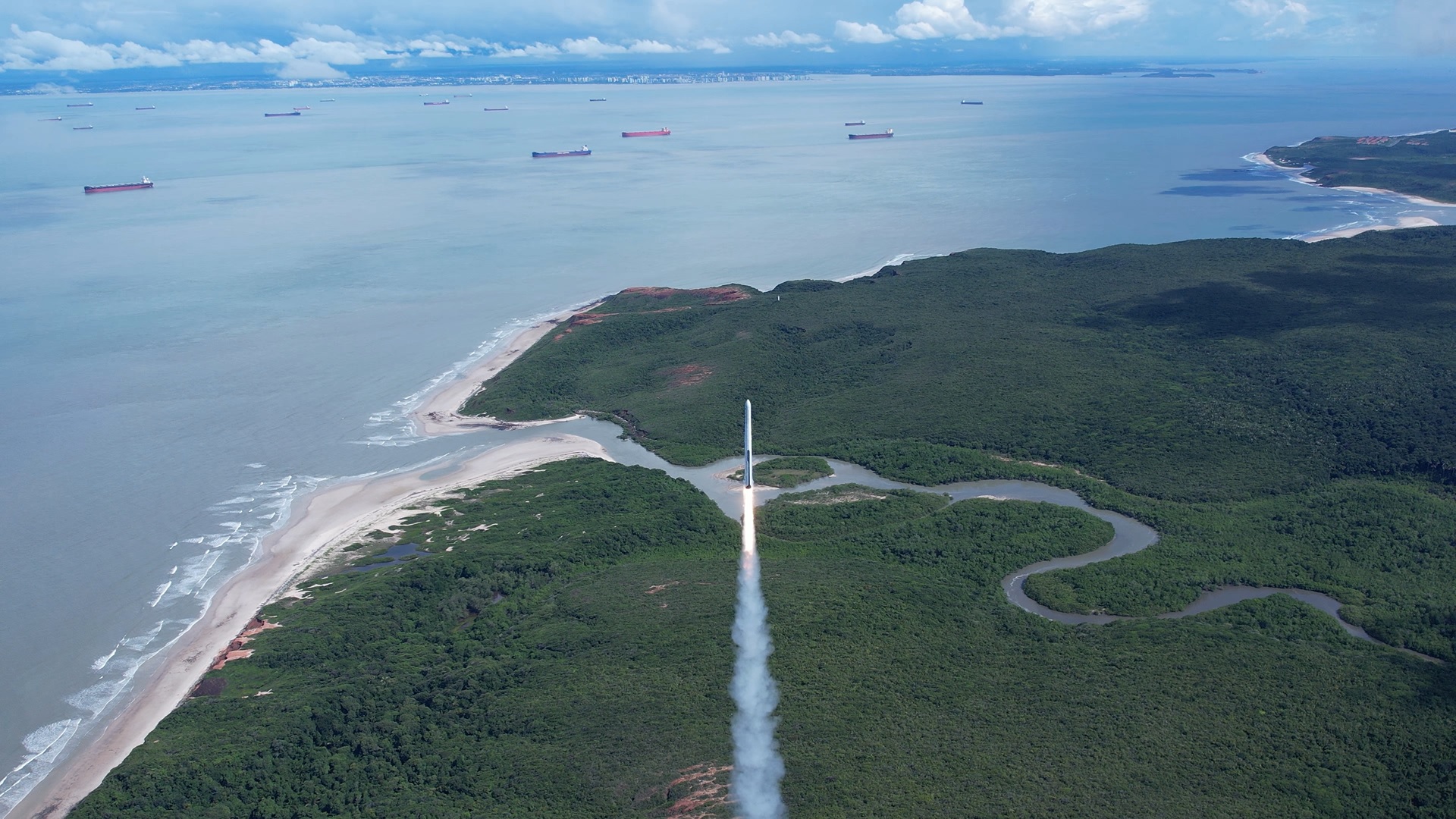SEOUL, South Korea — South Korean rocket startup Innospace successfully launched a suborbital rocket from Brazil over the weekend, demonstrating a hybrid motor it plans to scale up into a small orbital launch vehicle.
The launch of Innospace’s HANBIT-TLV suborbital rocket took place March 19 from the Alcântara Space Center, and the company called the flight a success, although it did not disclose the rocket’s peak altitude.
The rocket lifted off at 1:52 a.m. Eastern carrying an inertial navigation system called SISNAV, developed by the Brazilian Department of Aerospace Science and Technology (DCTA) under the supervision of the Brazilian Air Force.
Video footage shows the 16.3-meter, single-stage rocket soaring up into the sky. It was powered by the company’s self-developed 15-ton-thrust hybrid rocket engine that uses liquid oxygen and paraffin-based propellants.
“After engine ignition on the launch pad, the rocket engine burned stably for 106 seconds,” the company said in a March 21 statement. The rocket fell to a predesignated landing site after flying for four and a half minutes, according to the company.
The March 19 launch follows a series of delays, including one in December in which the company scrubbed the launch attempt, citing a valve issue.
“We concluded that the launch was successful after taking into account all the data collected during the flight,” Innospace CEO and founder Kim Soo-jong said during a March 21 news conference. While he didn’t reveal the maximum altitude the rocket reached, citing a nondisclosure agreement signed between Innospace and Brazil’s DCTA, the company previously said it aimed at 80 kilometers in the test launch.
The HANBIT-TLV suborbital rocket is a precursor to the company’s planned commercial satellite launcher, Hanbit-Nano, a two-stage small satellite launcher designed to carry up to a 50-kilogram payload to a 500-kilometer sun-synchronous orbit. Hanbit-Nano’s first stage will be powered by a 15-ton-thrust hybrid engine tested in the launch, while a 3-ton engine under development will power its upper stage. Innospace eyes Hanbit-Nano’s commercial debut in 2024.
“We are working to develop a ground test version of the 3-ton engine by the third quarter of this year,” Kim said. “In parallel, we are also working to develop technologies for stage separation and fairing, in collaboration with Korea Aerospace Research Institute, Agency for Defense Development and relevant companies.”
Kim said the “primary customers” for the Hanbit-Nano include cubesat-focused startups and research institutes in Asia, Europe and Latin America.
Innospace signed a deal last year to use Brazil’s Alcântara Space Center for five years, and negotiations are underway with Norway’s Andøya Spaceport. It is also looking for another launch site in Asia to cater to regional customers. “We are working to sign a deal with the Norwegian spaceport within this year,” Kim said.
Meanwhile, Innospace raised 20 billion won, or roughly $15 million, in December in a Series B Bridge round led by local venture capital firm Korea Investment Partners. Innospace has raised a total of 55.2 billion won ($42.1 million) since 2019 and is working with Korea-based Mirae Asset Securities toward an initial public offering as soon as next year.
